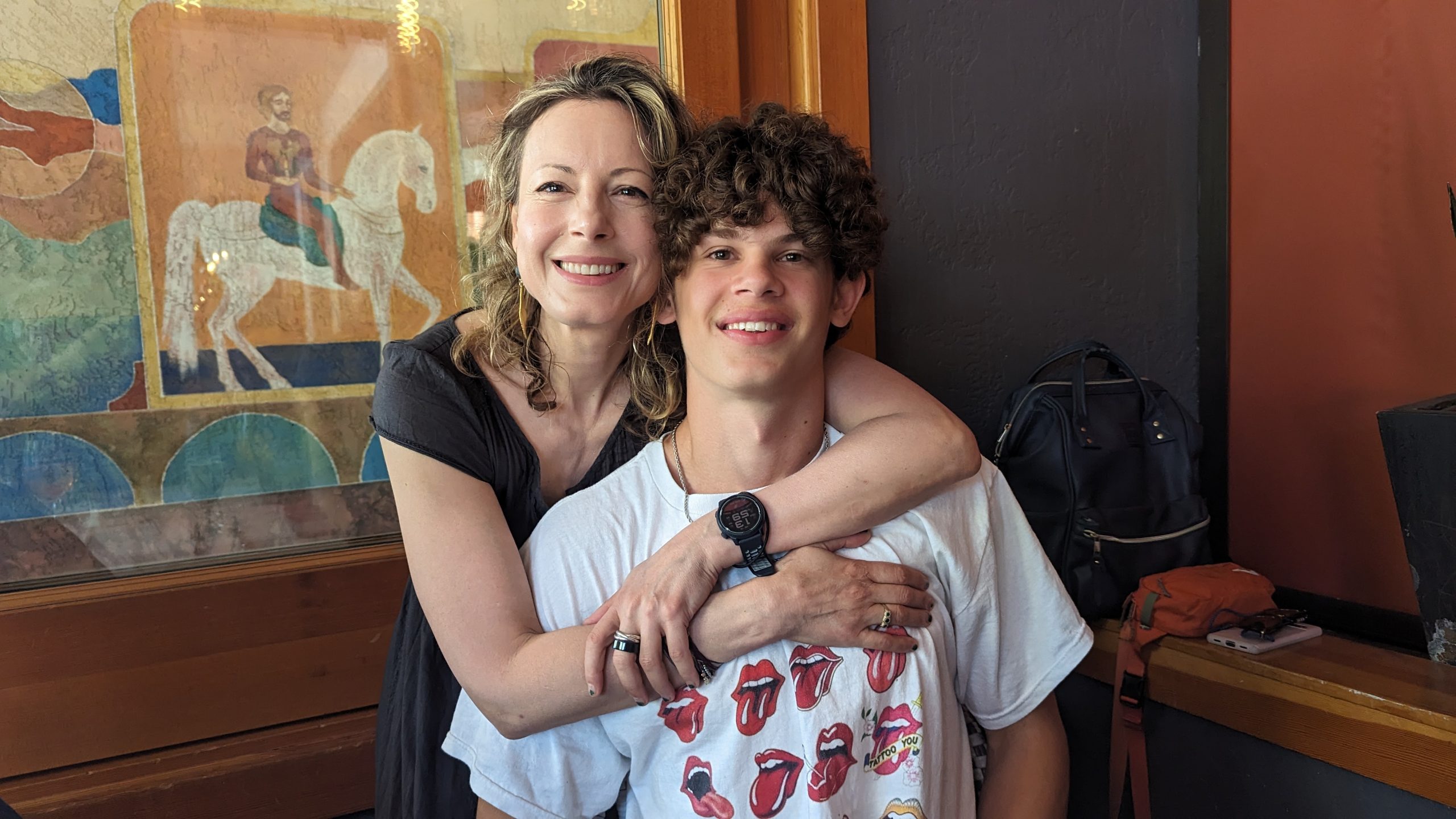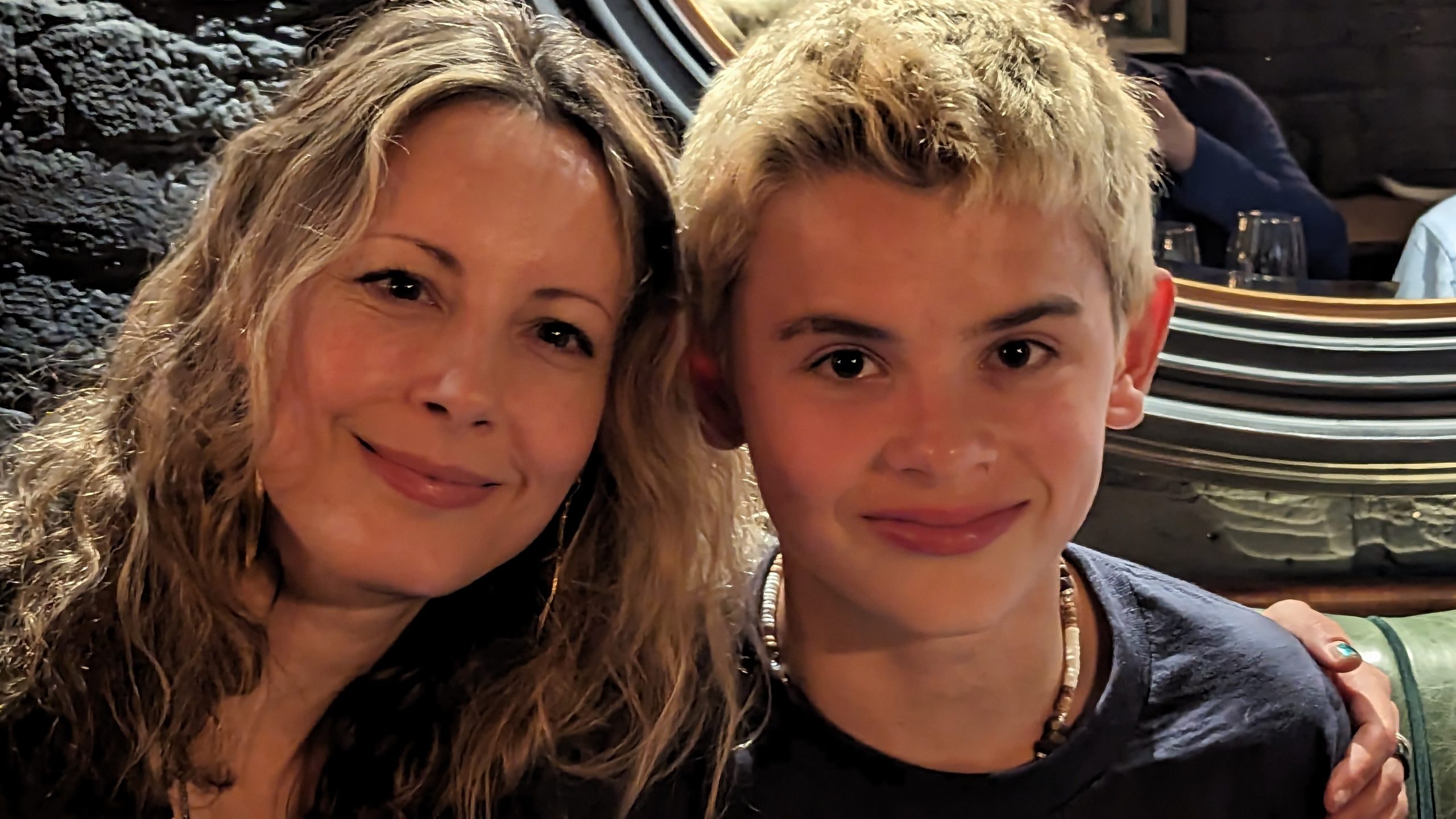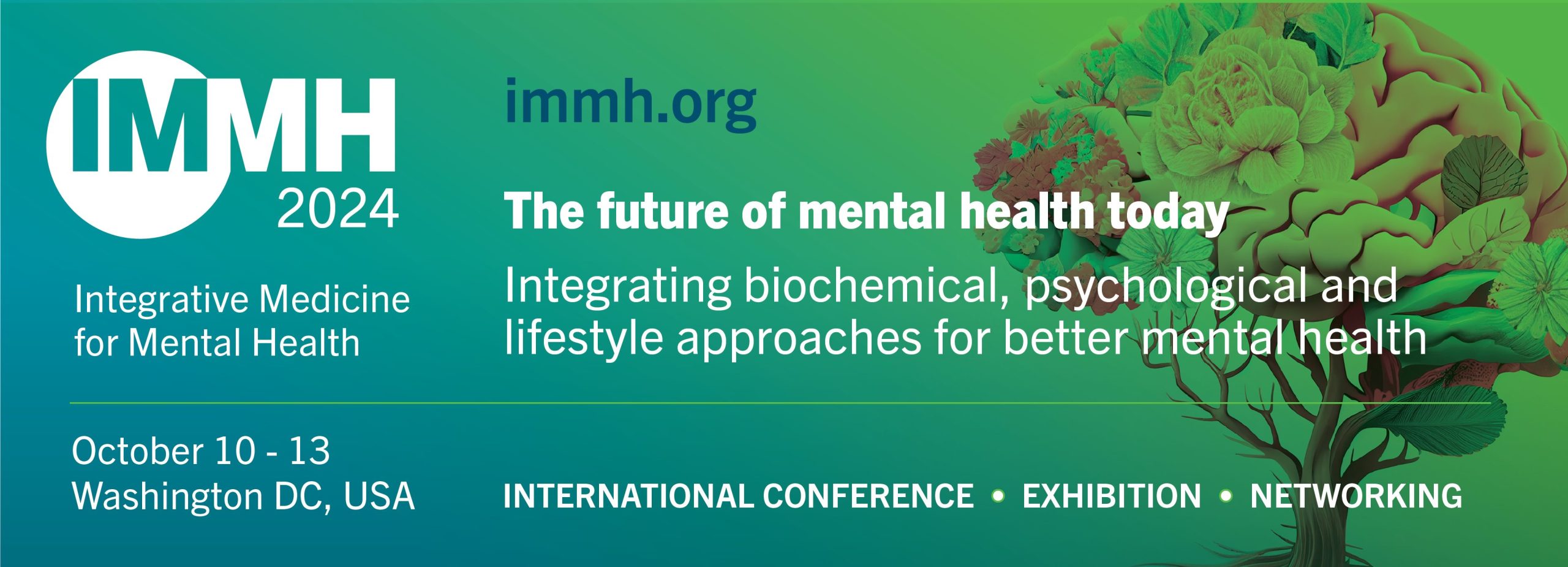Maternal mental health: my journey through postpartum depression
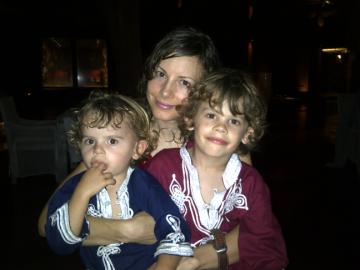
This week, the first week of May 2024, is maternal mental health awareness week, and I want to honour all the mothers out there who may be struggling with their mental health. Motherhood is not easy, especially when your own childhood was not exactly rosy. More than anything, becoming a mother can trigger one’s own maternal trauma buried deep into cellular memory.
We who have not been mothered well, often find it hard to mother well – whether ourselves, or our children.
My mother had a hard time mothering me. Her mother suffered from depression, had a drinking problem, and killed herself when my mother was 15, while on antidepressants which were later taken off the market for causing suicidality. She died on mother’s day no less, the 8th of May 1955. The tragedy of that death cast a pall over generations – my mother’s, mine, and my boys’. I know that my own postpartum depression was linked to that difficult mothering line which stretched between us like a strong gossamer thread of loss, longing, and love.
Exactly fourteen years ago I was in the throes of postpartum depression, my second one in the space of three years. Like the first one, I was having daily panic attacks and barely able to leave my home. Unlike the first one, I cried so much that there was no point in wearing mascara as it would soon be streaming down my face, and no point in getting out of my tracksuits or PJs.
I couldn’t look people in the eye, felt raw and skinned alive when I met anyone randomly in daylight, was incapable of small talk, couldn’t focus, and certainly couldn’t sleep.
My nights were endless torture of preparing for bedtime with utter trepidation and despair (trying everything from legs up the wall yoga poses, to lavender laced epsom salt baths, meditation, sleep music, sleep hypnosis, early daylight exposure and blue-light blocking glasses, magnesium, exercise, etc), knowing that I would wake up (assuming I managed to fall asleep) two to four hours later, and that would be it, my night would be over. I would then drag myself around all day like a zombie, going through the motions, recoiling with horror at my haggard reflection in the mirror which I imagined, in my body dysmorphic haze, looked 100 years old. I even created a series of photographs of me looking terrible, called “Despicable Me” in a sort of self loathing narcissism. Here is but one of the many examples. Of course looking back on it now from my fifties I think “damn, I have no wrinkles! What was I thinking!?”. But that’s the thing: when we are depressed, we aren’t thinking straight.
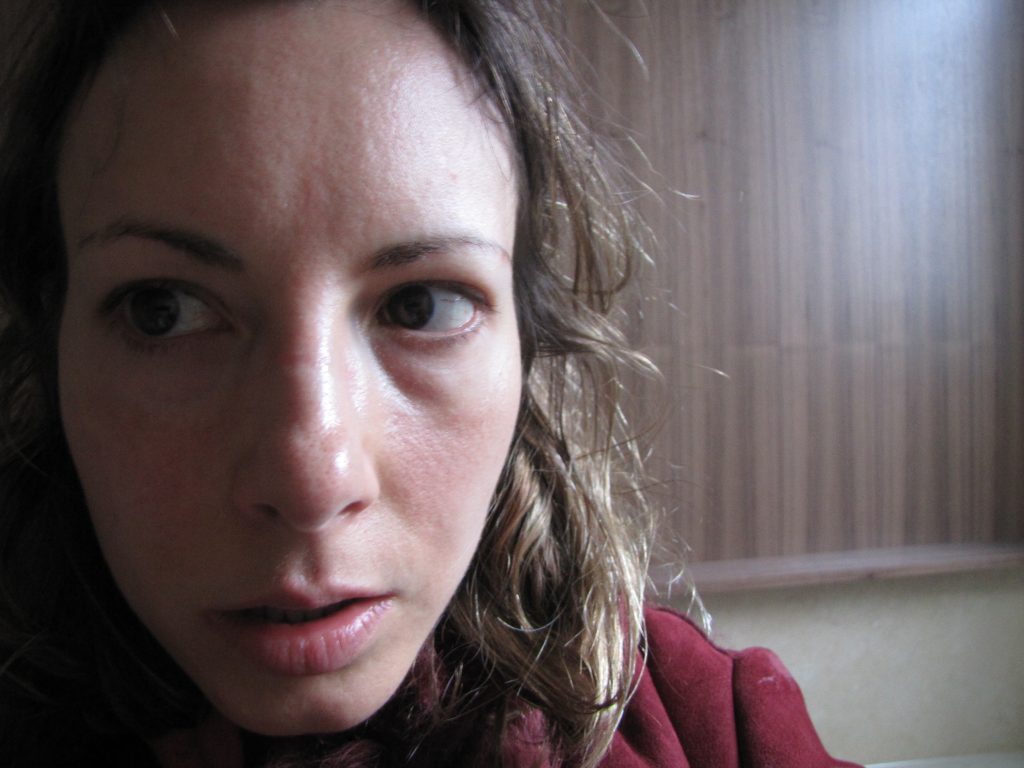
Despite this, I was rarely in bed all day and stayed relatively functional on the outside, but inside I was miserable, scared and hating life. I felt trapped in an unhappy home. My husband and I were like ships in the night… he was travelling for work, and when he was around we had little to say to each other, and he would usually be critical (probably because his own needs were not being met) and quiz me on why I hadn’t done such and such with the home or the boys (at which point I would silently – or not so silently – seethe with rage that I had three master’s degrees and I hadn’t signed up to be his PA!). I would then usually have a panic attack which would send me to bed. He told me he couldn’t deal with female emotions (he himself had a lot of unprocessed childhood/maternal trauma, his mother having been dispossessed of her children when he was two) and so I felt that the only way I could survive my marriage was to pretend that I was fine and soldier on, until I couldn’t.
The low point was when I called the Priory, an expensive private psychiatric hospital just outside London, and felt immense relief that they actually had a bed for me. However a wise young psychiatrist convinced me that panic attacks (of which I was having about five a day at this point) were better off dealt with in-situ. Otherwise they would simply return with the return home. I lucked out and that same day met a wonderful psychologist who taught me a very simple breathing technique:
breathing in 4, breathing out 8, at the speed of a slow metronome which he recorded on my phone. This recording became my lifeline, and stopped my panic attacks in their tracks. I have only had the beginnings of a couple in the many years since, and have managed to stop them in their tracks using this technique.
Those were the good psych people… I also had the bad psych people… several psychiatrists who tried to put me on SSRIs, and one succeeded in putting me on Mirtazapine (an antidepressant) and Zopiclone (a sleeping pill). When, after a few weeks of terrible side effects (while my anxiety and sleep improved, my mood and depression worsened, my hair started falling out, my nails became brittle, and I was so exhausted I could barely get out of bed) I complained that I wanted to get off the medication, my psychiatrist told me that those symptoms were not due to the drugs but to my depression. I was baffled that after never needing antidepressants before, I was now to be on them “indefinitely”, according to this psychiatrist who I grew to despise and eventually, decided to get off my drugs on my own, against her advice.
Long story short, it took me three years to normalise my biochemistry after six months on those drugs. Getting off them was torture, and I spent my 40th birthday (after about nine months, yes, the gestation period, of being on them) crying my eyes out on my own while my husband had taken my boys on holiday. I had horrific rebound insomnia and panic attacks, which is when I had considered checking myself into the psychiatric hospital. For the next many months, possibly years, any stress to my nervous system, whether negative or even positive (excitement) wired me to the ceiling and my sleep was toast. I could only tolerate a very boring, very slow life if I was to get more than four hours of sleep.
During this time, I would think back to my time in NY in my twenties, when I had laughed with my whole body and all my friends, felt such hope and optimism for the future, such a spring in my step, such excitement most mornings when I woke up. Yes, there were the odd moments of loneliness, sadness, and definitely anxiety to which I have always been prone.
But nothing like this bone crushing, relentless, soul destroying feeling of being dead inside, and hopeless of ever being able to recover any innocence or joy, or being able to engage with others wholeheartedly and from a place of Presence.
It is painful to think back to that time. My life is so different now. I am happier than I have ever been, even compared to my New York life in my twenties. I have two beautiful, wonderful, smart, sensitive teenage boys, a fantastic (now ex) husband, a soulmate of a boyfriend, close friends, a wonderful father and brother (sadly my beloved, complicated mother died a couple of years ago), work which gives me meaning and purpose and which I adore, relative health and a feeling of serenity, peace (when I’m not having an anxiety attack about my health (i’m a consummate hypochondriac when overwhelmed and stressed by work) and deep, unbridled gratitude. But the path to get here was not easy.
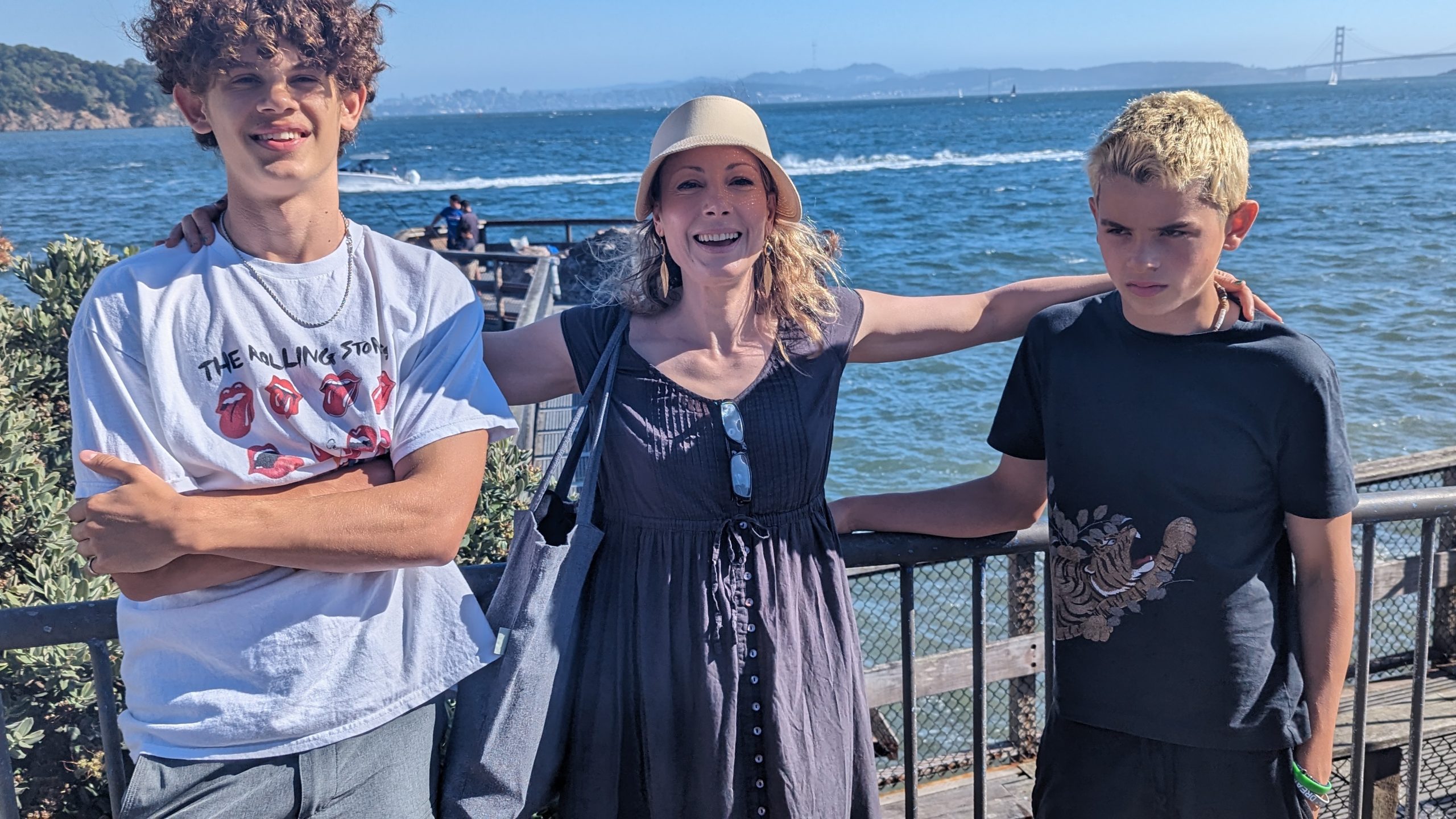
What healed me was a three year odyssey to find the root cause of my depression, and how to fix it. And what tipped the balance was finding out about a nascent type of medicine, burgeoning in the US, called functional medicine.
I discovered it by reading books (the first one I was given by a friend, Suzanne Somers Breakthrough), doing internet research, and finding a wonderful gynaecologist, Dr. Sara Gottfried, based in San Francisco, who practised functional medicine and did online webinars before they were even a thing (back in 2011!). I learned about the importance of hormones, especially adrenal hormones. I realised by working with a nutritionist that I had gluten intolerance, heavy metal toxicity, low B12, low omega 3s, low D, low estrogen, low progesterone, zinc-copper imbalance, as well as adrenal fatigue (as it was known at the time, now it is known more as HPA axis dysregulation) from relentless stress and busyness, itself based on being driven by childhood trauma of perfectionism, never being good enough, and the relentless need to be busy and achieve in order to run from the demons of fear and loathing that lurked in my psyche.
After painstakingly working with various integrative mental health practitioners, meditating, taking supplements and improving my diet, walking in nature, detoxing, healing my gut, and taking bioidentical hormones, I started to heal, slowly but surely.
As I healed I was outraged that all I had been advised, after seeing several psychiatrists, GPs, gynaecologists and even endocrinologists, that the best they could do for me was antidepressants, sleeping pills and some CBT (Cognitive Behavioural Therapy). And yet, there was this whole other type of medicine, functional medicine, which used lab tests to measure biomarkers and genetic variants in addition to a thorough analysis of symptoms and patient history, to diagnose the root cause of illness, and treated it by way of supplements, therapies and lifestyle interventions that effectively changed the biochemistry, detoxed and supported the body and the nervous system to return to homeostasis and heal itself.
In 2011, during this odyssey of trying to heal from my depression, I found out about a conference called IMMH – Integrative Medicine for Mental Health, which was taking place in Chicago. I bought a ticket, got on a plane, and spent three days meeting people who gave me hope and changed my life. One of the people who really stood out for me was Dr. Greenblatt, co-founder of IMMH and a child and adolescent psychiatrist, who gave a talk on integrative approaches to healing depression. Here was a board certified, bona fide, credible psychiatrist speaking of root causes of depression, nutritional psychiatry and supplements to support brain chemistry. He had case studies of patients he had helped recover with integrative approaches. I was hooked. All the psychiatrists speaking there and in attendance seemed to me to be forward-thinking visionaries. Some said “this is a more difficult type of medicine to practise, because often we and our patients prefer the simplicity of a pill, but this is the more sustainable approach, and if you’re willing to make the effort, patients can fully recover without drugs”.
Over the next many years I learned as much as I could about functional medicine and its practitioners. I discovered wonderful organisations such as the IFM (Institute for Functional Medicine) which offered training and certification programmes around functional medicine. I continued to attend annual IMMH conferences and met my tribe. Dr. Kat Toups, a board certified psychiatrist who had been trained in functional medicine and practised it longer than anyone, became a close friend, as did many other psychiatrists and practitioners in the community.
I made it my mission to spread the word about this type of medicine, which took into account the biochemical, the psycho-spiritual, and the lifestyle behavioural. To me, this was the only way to sustainably heal from mental health issues, and the world needed, and still needs, a revolution in the way mental health is diagnosed and treated, because conventional treatment falls woefully short, and mostly offers symptom management rather than true healing.
I was lucky enough to have the education and resources to pursue a successful healing journey, and I wanted to create an accessible shortcut for everyone suffering from mental health issues, their friends, families and health practitioners. So I built this website MindHealth360, to raise awareness and provide free resources and education around integrative mental health and functional medicine psychiatry. I launched a podcast to interview leading integrative mental health practitioners and functional medicine psychiatrists called The MindHealth360 Show.
Last year in 2023 I took over IMMH from its co-founder, Dr. Shaw, the founder of Great Plains Labs, and ran a successful online event. This year in October 2024 I am relaunching IMMH in person in Washington, DC. I am heartened that in the intervening years since 2011, things have started to very slowly but surely shift. You are not laughed out of the room by mainstream medical practitioners when you mention the impact of the gut on your brain and moods. It is accepted that blood sugar impacts mood; and meditation and inflammation are taken seriously. Scientific research on the immune system and its interaction with the nervous system is slowly starting to get into the vernacular. While mainstream medical practice often lags many years behind the science, maybe in today’s information age things are speeding up. The latest article in the Economist from April 24th 2024 titled Many mental health conditions have bodily triggers: Psychiatrists are at long last starting to connect the dots was a breath of fresh air, and a testament that things are changing.
But there is still a mountain to climb to bring this type of medicine into the mainstream, and make it accessible to everyone. So this is a passionate plea, whether you are a practitioner or a patient – whether a mother struggling with her mental health, a son, a brother, a father, a daughter, a friend, a colleague – to join me on the journey of revolutionising mental health diagnosis and treatment by demanding better education, training, and treatment from the medical establishment. Let’s do whatever we can to raise awareness, provide education, and contribute to ushering this new frontier of mental health diagnosis and treatment into the mainstream.
Join me 10th-13th October 2024 at the Gaylord National Harbor Resort in Washington, DC for IMMH 2024, to hear the latest scientific research and best clinical practice around integrative mental health and functional medicine psychiatry. The world and its young people need a revolution in mental health treatment, so let’s do this together!
